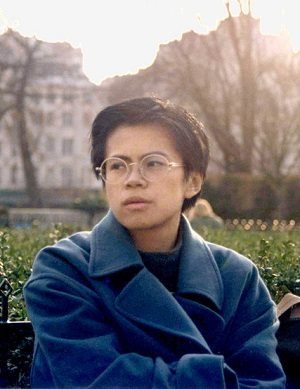
The truly incredible thing about reading is that although it is, at its most basic, an individual act, books are so widespread that loving a book can be a community act too. Even with the most niche of books or the book you felt was written only just for you can also speak to someone else in another country, even another time.
Speaking of time, two pages of text made by England’s first printer, William Caxton, were recently discovered in England. The pages, which are estimated to have been printed in 1476 or 1477, are an essential part of history, a time when bookmaking became easier, books were produced at an unprecedented rate, thus becoming cheaper and more accessible, and literacy rates soared. Nowadays it seems unthinkable not to have a personal collection of beloved books, some of them a bit bedraggled. Thanks to printers like Caxton words and ideas can be spread and live that much longer.
And then there’s Notes of a Crocodile by Qiu Miaojin. First published in 1994 and focusing on a group of queer friends living in 1980’s Taiwan, Notes’ exploration of queerness and queer identity still resonate with readers today. It’s a queer cult classic that was only recently translated into English. Maybe now it won’t be so niche. It may feel strange to connect with a book written about a time before you were even born, but that’s the magic of reading.
Perhaps that’s why books inspire passion – so much passion that a Chinese bookstore owner plans to re-open his banned books bookstore in Taiwan even after being abducted and threatened by Chinese authorities. It’s the same passion that led to the establishment of the soon-to-open American Writers Museum in Chicago, a unique museum dedicated to interacting in different ways, including smelling freshly-baked cookies, with a variety of texts from Tupac’s “Dear Mama” to Crockett Johnson’s “Harold and the Purple Crayon.”
One of the most traditional ways of interacting with a text in public, of course, is reading to a group or being read to. What American 90’s baby doesn’t remember falling in love with a book after seeing it on the award-winning show “Reading Rainbow” hosted by LeVar Burton? Apparently BBC children’s network CBeebies has a similar show for little one…and this week they’re borrowing Chris Evans, Captain America himself, from the Yanks to read Even Superheros Have Bad Days by Shelly Becker.
No matter how many times or what way its consumed, literature never really dies or even stays the same. The very nature of reading and writing is to build upon others’ ideas, to explore them and your own. Maybe that’s why books are both personal and private yet also so universal and common – you never really read the same thing twice.

